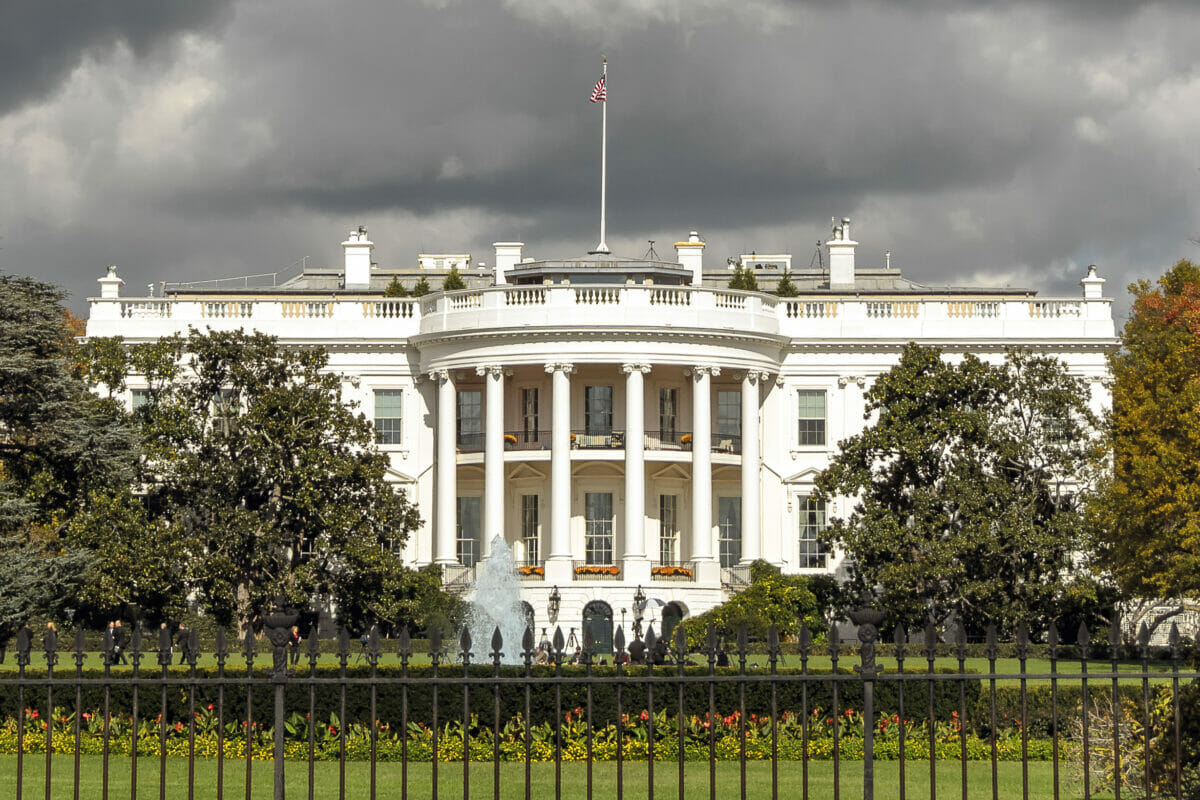LGIM’s Christopher Teschmacher, Multi Asset Fund Manager, comments on the US election, noting that the team see a conclusion in sight with Joe Biden in the White House and a split Congress; analysing what this means for the economy and financial markets:
In many ways, he did it again. Donald Trump significantly outperformed his pre-election polling, but the lines above from the Dylan Thomas poem make for a pretty good description of Trump’s apparent plan from here.
While he is still in with a chance, we see this race edging towards a conclusion with Joe Biden in the White House and a split Congress.
Trump may take up legal challenges to shave off a few hundred votes here or there, instigate recounts and reject calls to concede the election, but the margins in the battleground states suggest such strategies won’t yield a different result.
At the time of writing, betting odds suggest Trump has as low a chance of staying in the White House as Democrats have of securing the Senate and a clean sweep. At times during election night, a statement like that would have sounded out of place; the Asset Allocation’s overnight team saw surprising swings in election outcome probabilities, but relatively muted initial market reactions. These later unfolded into a spectacular rally for both equities and bonds, though, as investors’ actions once again echoed the sound of the lower for longer theme that markets have been playing for a decade.
Game on or game over?
From here, the impact of further developments with the vote count should be relatively small. Governing with a (likely) split Congress would be difficult and mean very little policy that could significantly move equity markets. That means a continuation of the status quo, no corporate tax hike, and no large green fiscal package. For the tech sector, and to a lesser degree banks, some sensitivity remains as potential regulation would rely more on personnel appointments rather than legislation in Congress.
Contested election scenarios remain important for markets if they materialise, but the chances that investors take them seriously are reducing rapidly. Trump’s fraud allegations do not seem to be gaining traction with the Republican mainstream. The public’s reaction is also important, but so far protests to disrupt (re)count efforts appear tame.
We nevertheless still see two risk scenarios:
- A 2000-style legal battle that runs into December. The S&P 500 was off 8% during the period of that litigation, although some of that could be ascribed to the bear market that was already underway. This time round, we should expect the impact to be smaller.
- The tail risk of the decision dragging closer to inauguration day and entering uncharted territory. While uncertainty would rise, the market impact should be capped by the limited impact this scenario would have on S&P 500 profits.
Fiscal bumble makes bonds rumble
While the vote counts may be taking centre stage, we believe the near-term US economic outlook will instead be dominated by the extent of disruption caused by the current nationwide surge of COVID-19 in the US, rather than the election outcome.
This is ultimately tied to fiscal stimulus, which is required to replace the fading impact from the first round of measures. There is a potential path to some modest stimulus in the lame-duck period, but it’s more challenging and any protracted legal battle over the election result would likely push that into next year.
The Fed was always likely to skip any significant policy change at this week’s FOMC meeting and, while it has few options left, it will likely continue to provide a backstop to markets while calling for additional fiscal support.
For 2021, fiscal stimulus will now likely require bipartisan agreement. The prospect of ending the filibuster appears gone. With the Republicans now wielding more influence in the Senate than pollsters would have had us expecting, aggressive Democrat spending plans originating in the House become far less likely to make it into law. Spending could still increase significantly, but it would likely be linked to pandemic relief rather than attempts to permanently increase the role of government in expanding demand in the economy.
The prospects for strengthening growth in 2021 now hinge more on a successful distribution of vaccines rather than a radical policy shift. Combined, the likelihood of less fiscal stimulus in the short term and no paradigm shift in fiscal policy that could have been expected under a blue sweep resulted in big moves in US interest rates, with 10-year yields tumbling 15 basis points from the election-night peak.
Bump and run
In the weeks running up to the election, equity markets slumped and we decided to lean against that weakness, upgrading our view on equities both within the short and medium term. Tactically, that was driven by our scenario analysis that suggested only a hard contested election would be the catalyst for material downside risks to emerge.
With a contest still a possibility and equities having bumped higher, we have taken profits on our short-term positions, but we are allowing our medium-term positive view to run on. That view is premised on vaccine timelines remaining unchanged, while we regard the economic damage done by current European lockdowns as temporary and partially countered by fiscal easing.
The risk to that view is that the US needs further lockdowns given COVID-19 hospitalisation rates are growing in 48 out of 50 states, at a time when fiscal stimulus might be hard to unlock, so we are once again back to watching virus developments.
















